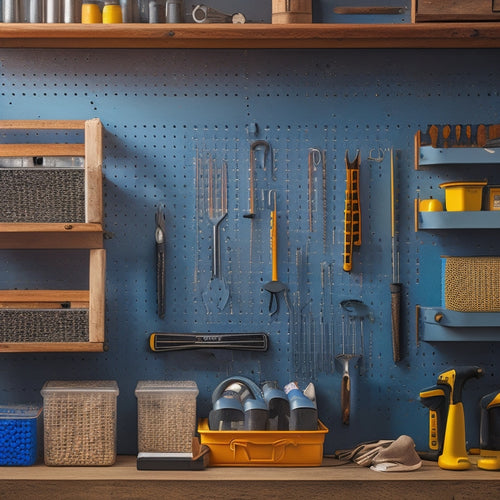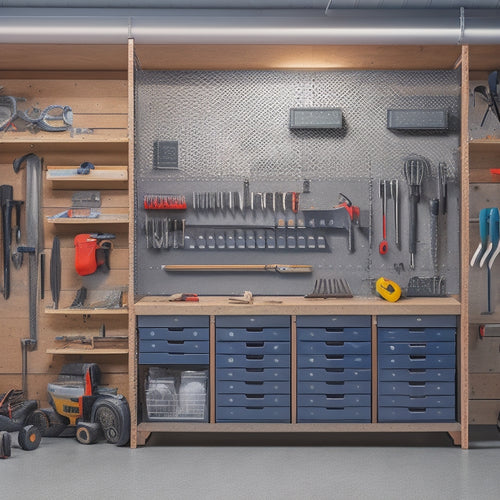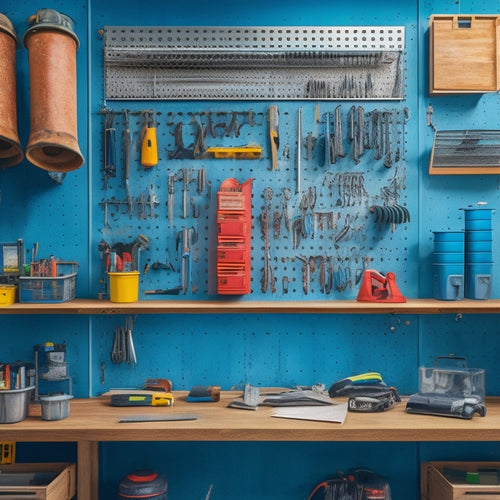
Discover Your Unique Clutter Personality Blueprint
Share
You possess a unique clutter personality blueprint, shaped by your habits, preferences, and responses to stress. Understanding this blueprint is the key to revealing a more organized and clutter-free life. By reflecting on your habits and preferences, you can identify perfectionist tendencies, recognize organizational stress triggers, and determine your preference for orderliness. This self-awareness will help you classify as a Gold, Silver, or Bronze clutter personality. As you uncover your clutter type, you'll be better equipped to establish boundaries, communicate with others, and develop a personalized plan for decluttering and organization. Now, take the next step towards creating your ideal space.
Key Takeaways
• Identify your clutter type (Gold, Silver, or Bronze) by reflecting on habits, perfectionist tendencies, and organizational stress triggers.
• Recognize your preference for orderliness and how it impacts your daily life and relationships.
• Pinpoint clutter triggers and develop a personalized decluttering plan to overcome them.
• Establish clutter boundaries with cohabitants by communicating openly about needs and concerns.
• Create a customized organizational system that accommodates your unique clutter personality and needs.
Uncovering Your Clutter Type
As you begin on the journey to understand your unique clutter personality, take a moment to reflect on your habits and preferences, asking yourself questions like 'Do I thrive in a clean and orderly environment or do I feel more comfortable with a bit of scattered creativity?'
Identifying your preferences is key to understanding your clutter type. Are you a perfectionist who stresses when organizational systems fail, or do you prefer a more relaxed, 'good enough' approach? Understanding your habits and what drives them will help you determine whether you're a Gold, Silver, or Bronze clutter personality.
Living With Others' Clutter
When you share your living space with others, their clutter can quickly become a source of frustration and conflict, making it essential to understand and respect each other's unique clutter personalities.
Establishing clutter boundaries is vital to maintaining harmony in your shared space. Communication is key to setting these boundaries and finding a compromise that works for everyone.
By understanding each other's clutter types, you can create systems that accommodate different needs. For instance, if you're a Gold clutter personality, you may need to delegate tasks to maintain order, while a Bronze personality may require space for creativity.
Openly discuss your needs and concerns, and be willing to forgive differences in clutter preferences. By doing so, you can create a living space that promotes harmony and respect for each other's unique clutter personalities.
Creating Your Organized Life
You can now begin the journey of creating your organized life by understanding and embracing your unique Clutter Personality Blueprint. This foundation allows you to develop personalized strategies for overcoming clutter and achieving your organizational goals. To get started, consider the following:
| Step | Action | Tips |
|---|---|---|
| 1 | Identify your clutter triggers | Recognize patterns and habits |
| 2 | Develop a personal decluttering plan | Set realistic goals and deadlines |
| 3 | Implement organizational strategies | Create systems for maintenance |
| 4 | Communicate with cohabitants | Share your blueprint and needs |
| 5 | Seek support and guidance | Hire an organizer or join a community |
Frequently Asked Questions
Can Personality Traits Change Over Time or Are They Fixed?
You wonder if personality traits are fixed or flexible, shaped by nature or nurture, and the answer lies in a balance between the two, with flexibility allowing for growth and adaptation over time.
How Do Clutter Personalities Affect Relationships Outside the Home?
You notice how social dynamics and workplace tensions arise when your clutter habits clash with others', affecting relationships outside the home; understanding your clutter personality helps you navigate these conflicts and find harmony.
Are There Any Benefits to Having a Mix of Clutter Personalities?
As you navigate the symphony of clutter personalities, you'll find that a mix of styles can be a harmonious blend of Creative Freedom and Productive Chaos, sparking innovation and growth, but requiring intentional communication to strike the perfect balance.
Can Clutter Personalities Be Influenced by Upbringing or Culture?
You wonder if your clutter personality is shaped by your upbringing and culture, and the answer is yes - family dynamics and cultural norms can greatly influence your attitudes towards organization and clutter.
Are Clutter Personalities Linked to Other Personality Traits or Disorders?
Are you curious about the intricate connections between your brain chemistry and clutter tendencies? Research suggests that genetic predisposition plays a role, influencing personality traits like impulsivity, anxiety, and perfectionism, which, in turn, impact your clutter personality.
Related Posts
-

What to Look for in a Pegboard Tool Storage Kit
When shopping for a pegboard tool storage kit, you need a system that combines customized organization, sturdy durabi...
-

Building a Wall Tool Storage System
You're about to create a customized wall tool storage system that streamlines your workflow. Start by clearing your w...
-

Custom Pegboard Storage for Your Workshop
You're looking to create a custom pegboard storage system that maximizes your workshop's space, enhances productivity...


